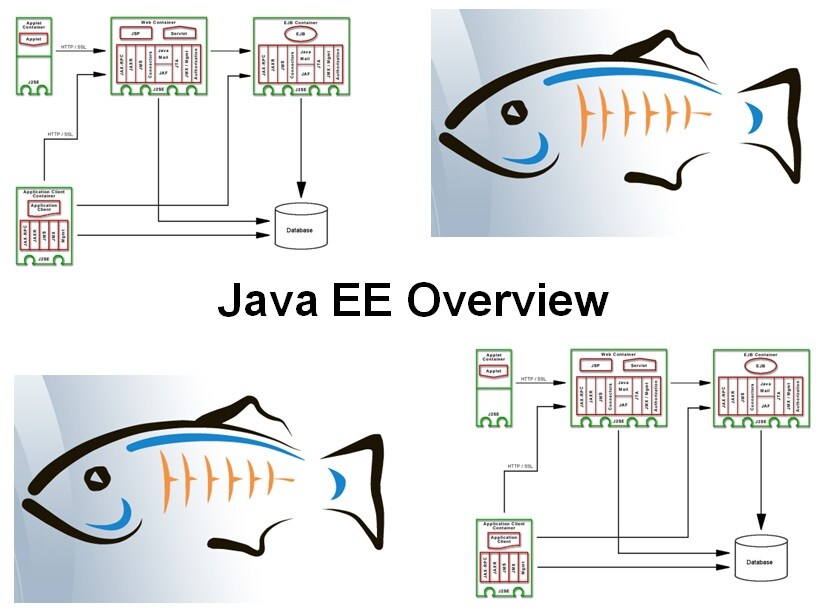-
Learning by doing
-
Trainers with practical experience
-
Classroom training
-
Detailed course material
-
Clear content description
-
Tailormade content possible
-
Training that proceeds
-
Small groups
The course Java EE Overview discusses the main points of the Java EE standard as it is implemented in application servers like GlassFish, WebSphere and JBoss. The demands of enterprise applications such as scalability, failover and distribution are discussed and how these demands are met by the Java EE platform.
Attention is paid to the role of the various Java EE Application Components as Java Servlets, Java Server Pages and Enterprise Java Beans. In this respect the JSF Framework for Java Web Applications is also discussed.
Key Java EE services such as JNDI (Java Naming and Directory Interface) and JTA (Java Transaction API) are part of the subject matter.
The various options for accessing databases are treated as well. Attention is paid both to the SQL-based Java Database Connectivity (JDBC) technology and to the new Persistence API for storing objects directly.
Furthermore other Java technologies in the context of Java EE, such as Web Services based on SOAP and REST are discussed as well.
During the day several application servers and Enterprise Java Bean containers that rely on the Java EE standard are addressed. If time permits, JMX, Java Management Extensions, as an optional module, is treated.
The course Java EE Overview is intended for developers, designers, managers and architects who want to get an overview of the capabilities and operation of the Java EE, Enterprise Edition, platform.
To participate in this course knowledge of modern software technologies such as C++, Java or. NET and Web applications is desirable.
The theory is discussed by means of presentation slides. The concepts are illustrated with demos and there is opportunity to practice. The course material is in English.
Participants receive an official certificate Java EE Overview after successful completion of the course.

Module 1 : Java EE Intro |
Module 2 : Servlets, JSP and JSF |
Module 3 : Enterprise Java Beans (EJB) |
| Java Editions Enterprise Application Challenges Java EE Standard Java EE Servers Web Components EJB Components Java EE and Web Services Deployment Descriptors Annotations Packaging in EAR Files Java EE Deployment Configurable Services Java EE API's |
Servlets and JSP's Translation and Request Time Problems with Servlets and JSP Classic MVC Pattern Model 2 Architecture Using Java Beans Scopes in Web Applications ServletContext Scope Session Scope Java Web Applications Web Application Structure MVC Frameworks Java Server Faces |
Types of Enterprise Beans Distributed Object Foundation Architecture of an EJB Enterprise Bean Class EJB Object at work Remote Interface Session Beans Statefull and Stateless Session Bean Pooling Message Driven Beans JNDI Naming Context Locate resources with JNDI Context and Dependency Injection |
Module 4 : Java EE Persistence |
Module 5 : Java EE Web Services |
Module 6 : Optional Module : JMX |
| Java EE Persistence Direct File I/O Serialization Java Database Connectivity JDBC Drivers and URL's Transparant Persistence Object Relational Mapping Persistence API Entity Classes Entity Manager Persistence Context Entity Managers |
What is a Web Service? Web Service Standards Web Service Types XML-Schema, SOAP and WSDL JAX-WS Web Services Servlet Based Endpoint Stateless Session Bean Endpoint JAX-WS Annotations REST Web Services Standard HTTP Methods Resource URI Access Content Negotation |
What is JMX? JMX Goal Where does JMX API fit? Managed Beans JMX Architecture Management Consoles Protocol Adapters Standard MBeans Implementing MBeans Naming MBeans MBean Server Registering MBeans |
